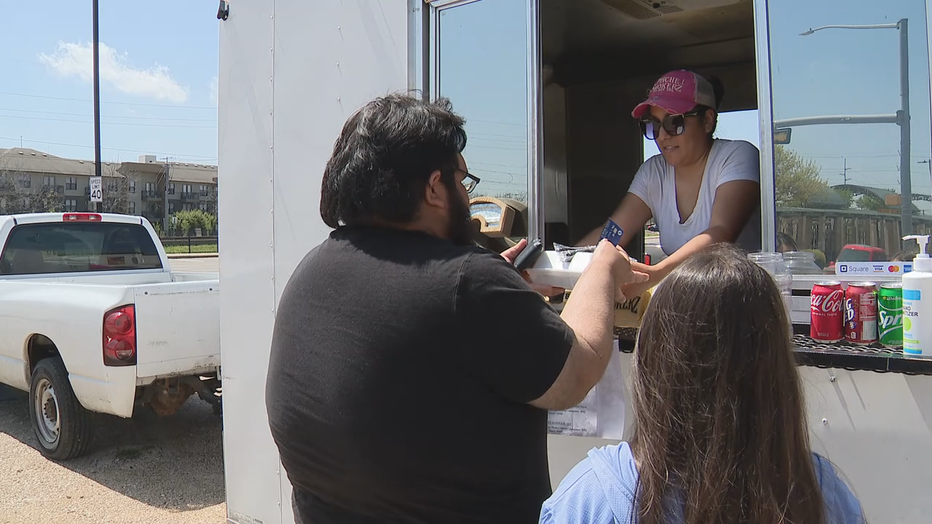Food trailer vendors feel unfairly penalized by Dallas city ordinance
Food trailer vendors feel unfairly penalized by Dallas city ordinance
Under the city's current ordinance, operating a food trailer costs a lot more than a food truck, despite the similar business model. To operate a food truck in Dallas, you just need an annual permit. But if you have a less expensive food trailer, the city requires a permit for each event the trailer does business at. Small business owners say that is making the cost of business too high.
DALLAS - Some Dallas food vendors say the city is unfairly penalizing them.
Under the city's current ordinance, operating a food trailer costs a lot more than a food truck, despite the similar business model.
To operate a food truck in Dallas, you just need an annual permit. But if you have a less expensive food trailer, the city requires a permit for each event the trailer does business at.
Small business owners say that is making the cost of business too high.
Eduardo and Maria Jaramillo started their service as more and more people began asking them to cater after trying their food.
"It was the beginning of the pandemic that we thought everyone loves to eat. Here we are," Maria said.
As business picked up, they bought a trailer and left their corporate jobs only to find out the city of Dallas would charge exorbitant fees for them to operate.

While food trucks only need an annual permit, the city's current ordinance requires food trailers to get a special event permit every time they operate.
Eduardo says he was shocked when he found out.
"We can't return the trailer," he said.
They now drive from Oak Cliff all the way to Garland, where they can operate with the annual permit.
Dallas City Councilman Chad West says the city's policy unfairly punishes the little guy. He's proposed an ordinance that would put food trailers in the same category as food trucks. The full council will vote on it later this month.
"If you are trying to get your business started, the city is hammering you with permit after permit," he said.
At a cost that can add up to thousands of dollars a year, it’s forcing business owners like the Jaramillos outside of their hometown.
"This is our only job," they said. "It’s how we pay bills."
The city also recently raised its permit fees to reflect the city's actual costs to process permits. The result is leading to some pushcart and coffee cart operators to see the fee increase from $150 to $300 without notice.
West wants the city council to not only revert back to the old fees but also refund businesses hit with the increases, saying it goes against everything else the city has done to try to help small businesses during the pandemic.

